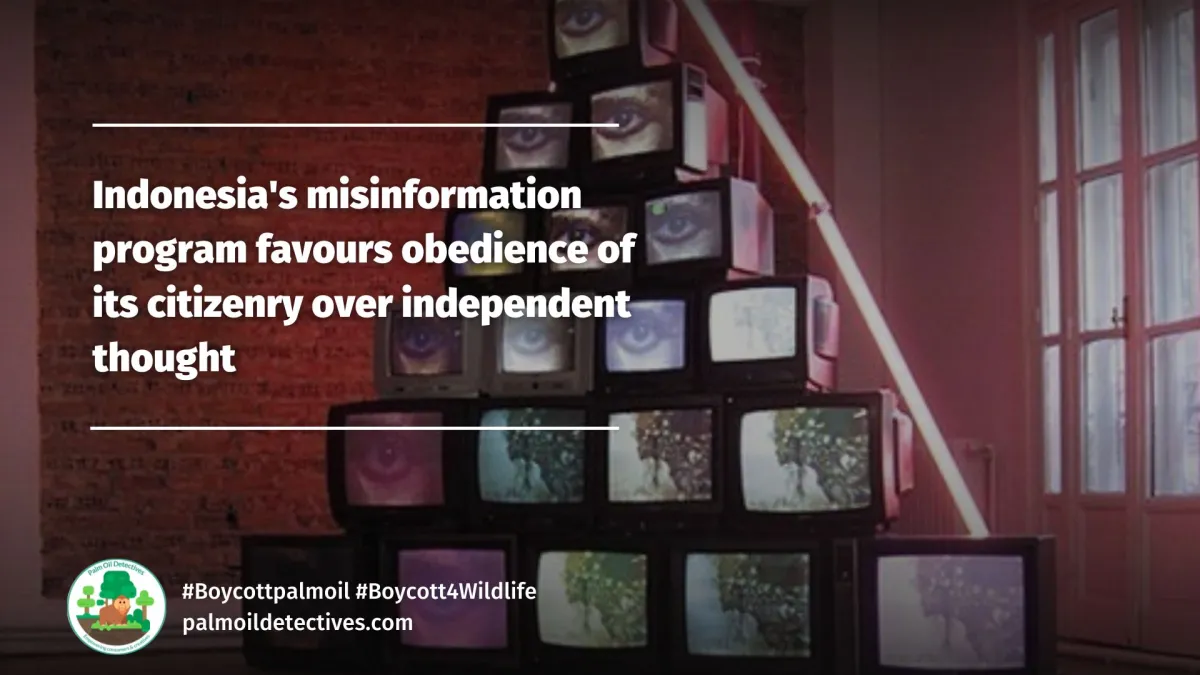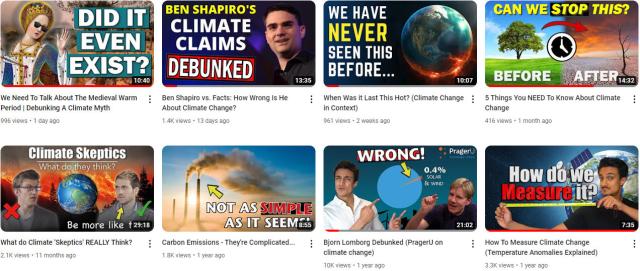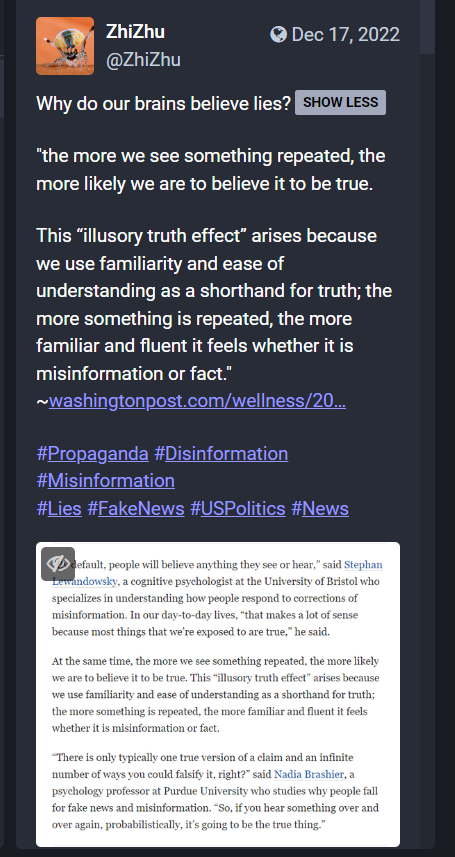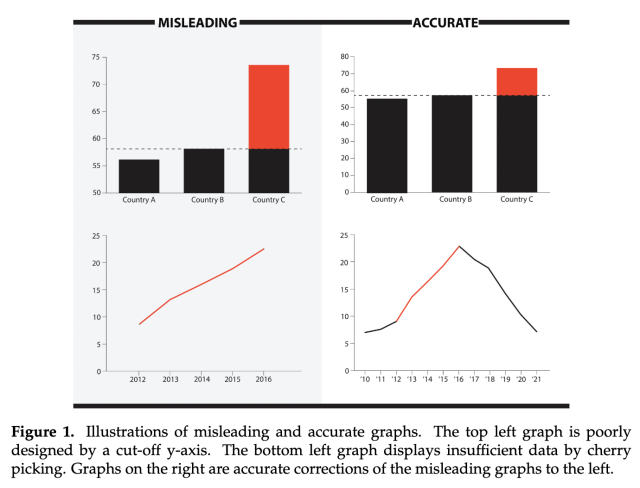Search
Items tagged with: Misinformation
palmoildetectives.com/2023/02/…

Indonesia’s government misinformation favours obedient citizens over independent thought
Like many countries, Indonesia’s online space is polluted by fake news, misinformation, and disinformation. As the country’s digital economy continues to grow, the government is focusing on cleanin…Palm Oil Detectives
Canadians using Twitter/X are being bombarded by misleading right-wing posts designed to boost Conservative leader Pierre Poilievre and tarnish the reputation of Mark Carney.
The FT’s analysis finds a growing volume of that misinformation is coming not from Russia or China, but the United States.
ft.com/content/743c1dec-0c5c-4…
#tech #canada #cdnpoli #twitter #x #elonmusk #misinformation #cdnelxn #cdnelection

Canadians bombarded with rightwing content on Musk’s X ahead of election
FT analysis finds network of social media accounts attacking Liberal leader Mark CarneyJoel Suss (Financial Times)
Latest comic: The Real Conspiracy
#misinformation #disinformation #authoritarianism #democracy #cartoon
"All About Climate" is a Youtube channel run by Roshan Salgado D'Arcy - or 'Rosh' for short. He is a geology graduate with an MSc in climate change and is currently reading for a PhD in the communication of climate change at University College London (UCL).
His channel is dedicated to communicating climate science and combating #misinformation about global warming. Because we think that his channel deserves more followers we are plugging it here:
skepticalscience.com/video-cha…
Plugging a video channel: All about Climate
All About Climate is a Youtube channel dedicated to communicating climate science and combating misinformation about global warming. It is run by Roshan Salgado D'Arcy - or 'Rosh' for short.Skeptical Science
"the more we see something repeated, the more likely we are to believe it to be true.”
Thread about the “Illusory Truth Effect” and why it is so important NOT to repeat lies on social media (or elsewhere), even with the intention of debunking them.
newsie.social/@ZhiZhu/10953071…
#Propaganda #Disinformation #Misinformation #Lies #Journalism
What's the best way to debunk a misleading graph? 📊
A new study suggests that providing an "accurate alternative" is most effective.
Misleading graphs can omit baselines to exaggerate differences and cherry-pick sections of data to hide greater trends. The other methods tested included providing a warning arrow pointing to the issue or an educational or general text warning next to the graph.
doi.org/10.22323/2.21070207
#SciComm #ResearchIntegrity #Misinformation #Science @academicchatter
Debunking strategies for misleading bar charts
Graphs are useful to communicate concisely about complex issues. Although they facilitate intuitive reading of data, trends, and predictions, hasty readers may still come to the wrong conclusions, especially if graphs are misleading due to violated d…JCOM - The Journal of Science Communication




